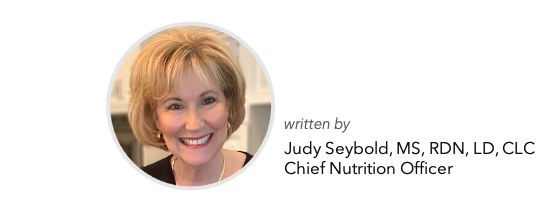Food As Medicine: Eating for Greater Wellbeing

While genetics play an important role in our wellness, they’re not the whole story. Thanks to the expanding field of nutrigenomics, which studies how food influences our genes, we know now that what we eat plays a powerful role in our wellbeing.
There is a growing body of scientific evidence that shows how choosing nutrient-dense foods as the mainstay of our diets may help us prevent and treat disease. Whole, unrefined, unprocessed choices can help us to not only control inflammation, but also balance hormones and blood sugar, detoxify and alkalize our bodies, improve the absorption of nutrients, and contribute to our longevity overall.
This is welcome news, especially if you consider how one in every five deaths worldwide is attributed to a suboptimal diet—more than any other risk factor, including tobacco. Diet-related disease is costing us lives and real dollars: diabetes is priced at $327 billion and cardiovascular disease at $316 billion each year.
But it doesn’t have to be that way. Instead, we can eat for sustenance and energy and, in combination with conventional medicine as needed, for healing.
Healing Properties
If Webster defines medicine as “The science and art of dealing with the maintenance of health and the prevention, alleviation, or cure of disease,” then good food has a place at the table, literally and figuratively. Not only do we need it to stay alive, but to give our bodies the “information” and materials they need to function properly. Without both inputs in the right measures, our metabolic processes can suffer, putting us at risk for malnourishment, obesity, and allergies; autoimmune disorders like thyroid and arthritis; and diseases like cancer, heart disease, and diabetes.
In the past, scientists believed that these and other conditions were the inevitable byproduct of our genes. But now, they see the problem as not the genes themselves, but how they're expressed in our bodies. While more study is needed, current research shows that food can have a meaningful impact on how that expression takes place, along with outcomes related to our health and our healthcare.
For instance, in a study of 1,020 participants reported by the online journal BMJ.com, results associate the distribution of medically tailored meals with a 16 percent net reduction in overall costs, 49 percent fewer inpatient hospital admissions, and 72 percent fewer admissions into skilled nursing facilities than the control group.
The Food as Medicine Mindset
What does this mean for you? As science continues to explore the potential of food as medicine, there are several ways you can incorporate this idea into your own life right now. That includes:
- Adopting a “food as medicine” mindset. Take a broad view of food and nutrition that goes beyond counting calories and involves eating for both pleasure and longevity.
- Veering away from the standard American diet. It's simply not good for you. For one, the typical American diet is heavily reliant on processed foods high in refined sugar, fat, and chemicals. For another, with two-thirds of our modern-day calories now coming from only four ingredients--corn, soy, wheat, and rice—it’s been linked to many modern health conditions.
- Eat whole, real foods 80 percent of the time. Focus on those with healthful and healing properties, like plant-based and lean-protein alternatives. Include fruits and vegetables; organ and grass-fed meats; healthy fats like coconut, avocado, and olive oil; nuts and seeds; oily fishes rich in Omega-3’s like salmon and mackerel; beans and lentils; superfoods like cocoa and red wine; and herbs like garlic, turmeric, and ginger. These have all been shown to have medicinal value.
- Go hybrid. While eating well can help promote healthy living and aging, it may not always be enough. This is especially true if you’re dealing with a chronic illness or disease, in which case you’ll need a dual approach, one that combines good eating with the medical care and consultation from a credentialed professional who understands the link between food and good health. Look for a functional medicine practitioner who can help you create a tailored eating plan that makes sense for your unique situation.
While "food as medicine" is now widely embraced, it’s important to keep it in perspective. Like anything else, food alone isn’t a cure-all or a panacea for never getting sick, but it is an important tool in many ways—for nourishment, for pleasure, for healing.
updated April 2024
Sources:
Food is medicine: actions to integrate food and nutrition into healthcare
University of Minnesota's Earl E. Bakken Center for Spirituality & Healing: Food As Medicine